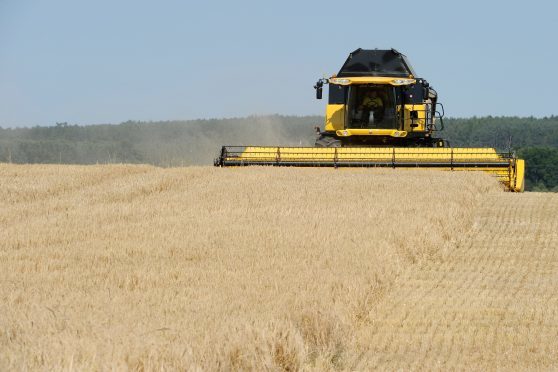Farm incomes enjoyed a welcome 36% boost in 2017, according to the latest official statistics from the Scottish Government.
Estimates suggest that total income from farming (TIFF) increased by £245 million to about £917m last year, which is the third highest since 2000 once inflation is taken into account.
However, while the figures were welcomed by Rural Economy Secretary Fergus Ewing, industry insiders warned that much of the gain was as a result of exchange rates or better yields rather than improved output prices.
And the dairy sector, which had the most significant impact on the improvement in fortunes, pointed out that the period when their returns rose above the five-year average lasted only five months.
During 2017 the average price of milk increased 28% from the devastating low of the previous year and this, together with a moderate increase in production, resulted in the value of milk increasing from £117m to £434m. However, prices are now falling again.
Nevertheless, the figures issued by the independent chief statistician are encouraging.
In the cereals sector there was a 10% increase in the barley harvest and an improvement in prices saw the value of barley increase £67m, or 36%, to £253m.
The value of wheat also rose on the back of good prices, to £128m and there was a 4% increase in the value of potatoes.
Livestock is also estimated to have seen a small increase in value in 2017, with beef prices slightly above 2016 levels throughout the year.
The sheep sector saw a second year of price rises, with output worth £222m and there was a 24% rise in the value of pig meat, while the poultry sector saw a modest decline to £80m.
Overall costs fell slightly in 2016, but are estimated to have increased about 7% in 2017, while labour costs, having remained fairly steady in 2016, look like increasing by £34m to £416m in 2017.
Commenting on the figures, NFU Scotland’s crops committee chairman, Ian Sands, who farms in Perthshire, said the improvement in grain prices had been largely driven by changes in currency rates due to Brexit uncertainty.
He added that better returns had been counteracted by the increases in the prices of fuel, fertiliser and machinery.
Aberdeenshire farmer and NFUS livestock committee chairman Charlie Adam also warned that the improved figures should be viewed with caution.
nnicolson@thecourier.co.uk










